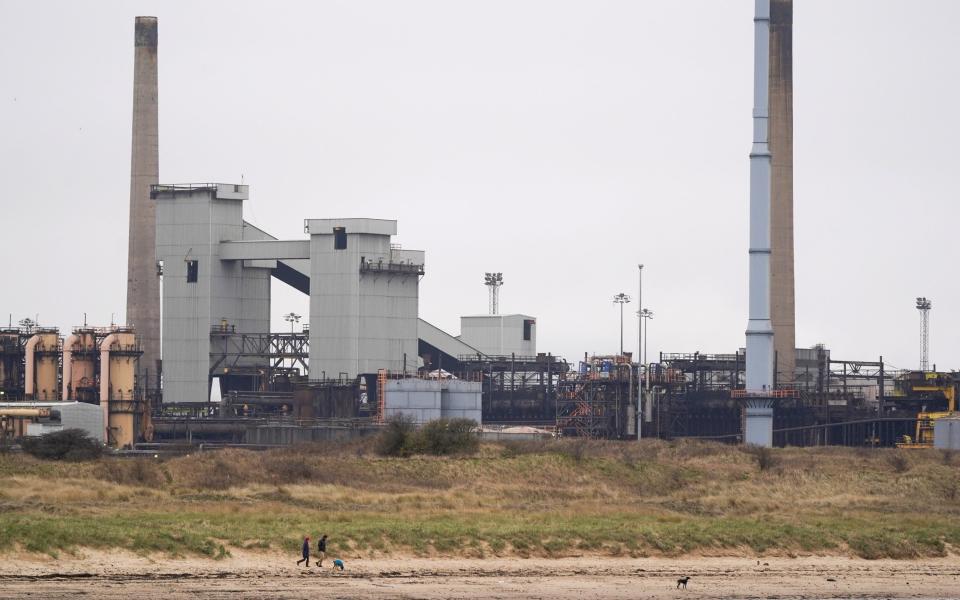BP to develop UK's largest hydrogen factory in Teesside

BP is planning to build a vast hydrogen factory in Teesside to provide energy for local industry and homes.
Its H2Teesside could be producing hydrogen from natural gas – so-called 'blue' hydrogen – by 2027 or earlier with a target of generating 1GW of hydrogen by 2030.
The Government wants to develop 5GW of hydrogen production by 2030 as part of its effort to cut carbon emissions.
Hydrogen does not emit carbon when burned, although making it from natural gas as opposed to via electrolysis (dubbed 'green' hydrogen) does produce vast amounts of carbon dioxide.
How hydrogen output could expand in the coming decades, using carbon capture utilisation and storage (CCUS):
BP plans to stash carbon dioxide from its facility under the North Sea using carbon capture systems, saying two million tonnes per year could be stored.
Hydrogen currently plays a limited role in the energy system, and the extent to which that should grow remains unclear and the subject of significant debate.
It is seen as an effective alternative to fossil fuels where electrification will not work. The UK's domestic heating system currently runs on natural gas but there is debate over the extent to which that should be replaced by hydrogen.
Another potential solution is electric heat pumps, which act like a fridge in reverse, sucking in air from the outside to heat people's homes.
The enthusiasm of BP and other large energy companies is likely to push hydrogen to the fore, with BP also announcing today a memoranda of understanding with Northern Gas Networks and chemicals company Venator to potentially provide them with hydrogen.
BP's decision to build a hydrogen facility using natural gas rather than electrolysis comes as researchers battle to bring down the costs of both technologies.
The oil giant has also signed a memorandum of understanding with the Tees Valley Combined Authority to explore developing hydrogen via electrolysis.
Heavy industry in Teesside accounts for more than 5pc of the country's emissions, making the area a major target for efforts to decarbonise.
Carbon capture systems upon which the H2Teesside facility will rely are not yet used at scale in the UK.
Under chief executive Bernard Looney, BP has pledged to be a net zero emissions business by 2050.
Dev Sanyal, BP's executive vice president of gas and low carbon energy, said: "Blue hydrogen, integrated with carbon capture and storage, can provide the scale and reliability needed by industrial processes.
"It can also play an essential role in decarbonising hard-to-electrify industries and driving down the cost of the energy transition."
A final investment decision on H2 Teesside will be made in early 2024.

 Yahoo Finance
Yahoo Finance 